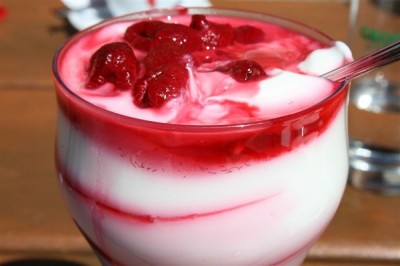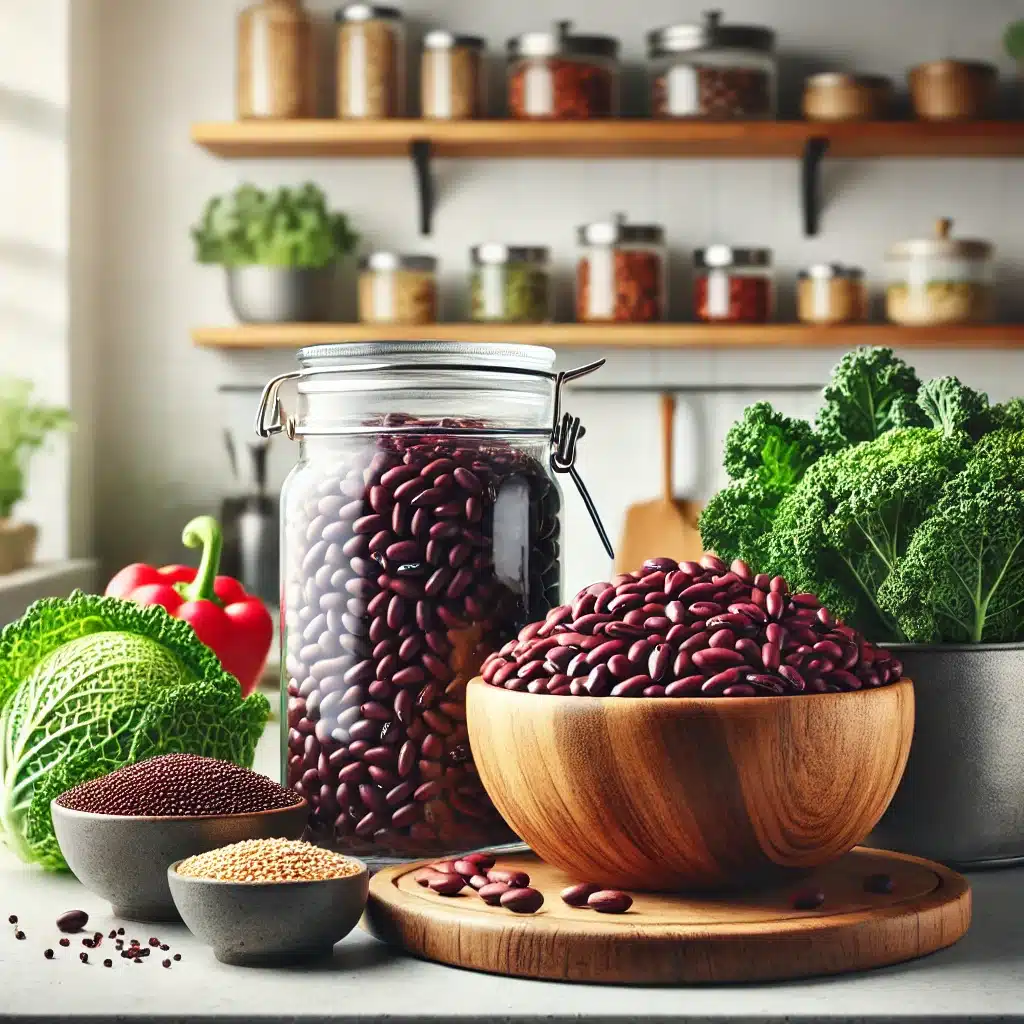
According to Hippocrates, all diseases have their origin in the stomach. Ayurveda, the health science of ancient India, has a similar theory. Latest discoveries by modern science also point in the same direction. Based on these findings it behooves us to take care of our digestive tract in order to promote overall health and wellness.
Digestion is a complex process by any standard, with different systems of the body such as the endocrine glands, nervous system, the circulatory system, and the muscular walls of the digestive canal, all working in tandem. Several factors, including lack of sleep, consumption of highly processed foods and anxiety can adversely affect digestion. Once the smooth working of the digestive system is disrupted, it takes quite some time for the body to get back on track. That’s when we need to help it along by eating foods that aid digestion.
Probiotic foods:
Our gut is home to innumerable bacteria and other microorganisms that start establishing colonies right after our birth. These bacteria are essential for the breakdown of many complex compounds in the food. They also help produce certain B-group vitamins that aid digestion and assimilation of nutrients. But sometimes, the delicate balance between the pathogenic bacteria, and the beneficial bacteria that keep them in check, becomes disturbed.
Antibiotics show no discrimination between the good and the bad when they destroy the microorganisms in the body. The beneficial flora in the stomach and the intestines take a beating each time we take a course of antibiotics. The sudden decrease in the number of beneficial gut bacteria due to antibiotic usage may cause spikes in the population of pathogenic bacteria and yeast. This further deteriorates the condition of our stomach. To treat antibiotic-associated diarrhea, concentrated bacterial cultures in liquid or powder form are often prescribed. These commercial cultures may contain either Bifidobacterium or Lactobacillus.
Probiotic foods introduce beneficial bacteria into our stomach in large numbers. The most common natural probiotic food is yogurt containing live culture. They typically contain different strains of Lactobacillus, and are very useful in relieving diarrhea due to lactose intolerance as well as antibiotic-associated diarrhea.
Make “Off-The-Grid” Super Foods Secretly In Your Home
Some of the other traditional probiotic foods:
- Kefir
- Sauerkraut
- Kimchi
- Natto
- Tempeh
- Yakult
Sauerkraut and Kimchi are made by fermenting cabbage and other vegetables.
Natto and Tempeh are fermented soya beans products. Yakult is commercial probiotic drink. It contains the live culture of the Shirota strain of Lactobacillus casei.
Alkaline foods:
Our body normally keeps a slightly alkaline profile, the normal pH being between 7.35 and 7.45. But parts of the digestive canal, where most of the digestion takes place, have an acidic atmosphere, except for the small intestine which is more concerned with absorption of nutrients. A Western diet also tends to increase an acidic environment. An increase in acidity is associated with disease and the body cannot utilize the nutrients from the food, and may leach minerals from the bones into the blood.
Food items are categorized as acidic and alkaline not based on their taste or composition but on the cumulative effect they have on the body. For example, lemons are acidic to taste, but they are one of the most potent alkaline foods. Most of the foods in our daily diet, especially refined flour, sugar, meat and other food items of animal origin, are too acidic. To keep the acid-alkali balance of the body, we should include more alkaline foods into our daily intake.
Some common alkaline foods:
- Vegetables: celery, cucumber, kale, sprouts, cruciform vegetables
- Root vegetables: radish, beetroot, carrot, kohlrabi, potatoes
- Fruits: watermelon, lemon, figs, cherry, avocado, banana
- Nuts: almonds, pine nuts
- Oils: coconut oil, olive oil, flaxseed oil, sesame oil
- Beverages: herbal teas, buttermilk, water
- Spices: oregano, basil, peppers, cumin, caraway seeds, garlic
- Sweeteners: stevia, raw honey
Fiber-rich foods
Fiber is necessary to add bulk to the contents of the gut and push things along the digestive canal. Lack of fiber in the food typically results in constipation. Fiber is especially important in protein-rich diets because proteins leave very little undigested waste, and unless accompanied by fiber, it will remain longer in the gut and become putrefied.
There are two types of dietary fibers; soluble and insoluble. Soluble fibers are found in fruits, vegetables, grains, pulses and nuts. They form the soft, pulpy portion. As the name suggests, they dissolve in water to become gelatinous compounds that modifies the structure of the food. They are digested in the body.
Insoluble fiber is mainly found in the tough skin of fruits and vegetables and the husk of whole grains. Bulking up of the stomach contents is the main function of insoluble fibers. They generally pass through the digestive canal without much alteration. Too much insoluble fiber is bad, too. It will move the food down the digestive tract all too soon, without giving sufficient time for the digestion and absorption of nutrients to take place.
Good sources of soluble fiber:
- Fruits: Bananas, papaya, berries, apples, avocados
- Vegetables: Carrots, broccoli, sweet potatoes
- Grains: Oats, barley
- Pulses: Peas, beans, lentils
- Nuts: Almonds, pistachios
- Supplements: Psyllium husk, flax seeds
Good sources of insoluble fiber:
- Skins of grapes, peaches, potato etc.
- Vegetables like cabbage, cauliflower, green beans, celery
- Wheat bran, brown rice, millets
- Chickpeas, peas, beans
Water
From the moment food enters the mouth, water is mixed with it in the form of saliva. The major part of stomach acids and digestive enzymes are nothing but water. The mucous lining of the gut that protect it from its own secretions also contain water. When the body is dehydrated, digestion cannot take place properly. The soluble fibers in the food need large quantities of water to bind with them. Constipation results, if high-fiber food is taken without sufficient quantity of water to moisten it.
Foods with high water content such as watermelon, berries, cucumber, citrus fruits, squash, etc. should be included in the diet to hydrate the food. Drinking light herbal teas several times a day will help flush out wastes from the body as will a glass of warm lemon water first thing in the morning.
Spices and condiments
Spices and condiments are usually consumed in small quantities, but they play a big role in maintaining healthy digestion. Spices have been part of our diet from time immemorial. The English recognized the ability of spices to keep foods, especially meat, from spoiling. They even fought wars to get control over spice-producing areas.
Some spices that help digestion:
- Ginger: It is a well-known digestive aid. Mild indigestion can be treated with one teaspoon of ginger juice mixed with equal quantity of raw honey.
- Fennel seeds: They have proven antimicrobial properties. Chewing a spoonful of fennel after meals is custom in some Asian countries. It will take care of indigestion, stimulate digestion and refresh breath.
- Cumin seeds: Indigestion following high-fat meals can be relieved by drinking a tea made by boiling a teaspoon of cumin seeds in a liter of water.
- Garlic: It is a stomach cleanser that normalizes digestion and can easily be incorporated into your daily diet.
- Peppermint: Peppermint tea can help relieve pain and bloating due to gas.
Eating a diet rich in organic whole foods, drinking plenty of water, managing stress, exercising and getting plenty of sleep are all favorable life changes you can make to help improve the health of your digestive tract. Food is powerful and when you eat “real” food you will notice how great you can truly feel.
Sign up for Off The Grid News’ weekly email and stay informed about the issues important to you










